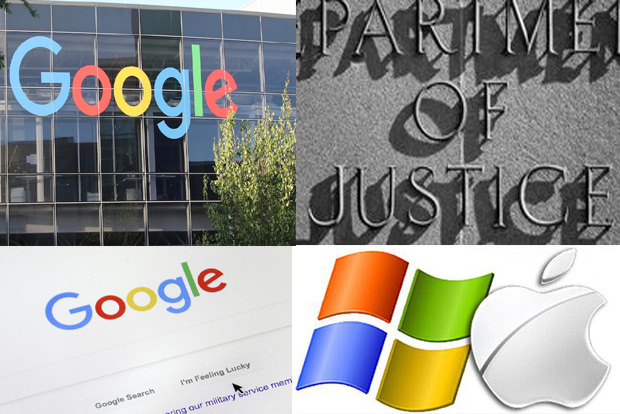The Google lawsuit: Long antitrust winter comes to a close
The true significance of the federal antitrust lawsuit filed against Google on Tuesday cannot be captured by any narrow debate about legal doctrine or what the case will mean for the company. This is a big case, filed during an important time, and it merits a commensurately broad understanding.;
By : migrator
Update:2020-10-23 04:20 IST

Chennai
The complaint marks the return of the U.S. government to a role that many of us long feared it had abandoned: disciplining the country’s largest and most powerful monopolies.
President Theodore Roosevelt best explained the role played by antitrust law after his Justice Department filed suit in 1902 against the Northern Securities Company, formed by JP Morgan and others. Roosevelt wrote to a friend that “the absolutely vital question” was whether “the government has the power to control the trusts.” As he had said earlier in a speech, the “immense power” of aggregated wealth “can be met only by the still greater power of the people as a whole.”
Can the power of the people prevail over the power of Google and other business giants? As in the days of Theodore Roosevelt, the power of today’s biggest private companies rivals that of the government, and they arguably have more influence over how we live. Historically, the reaction to unfettered private power has often taken one of two forms. One is passive acceptance, in the hope that the private sector will do what is best for the public. That is unfettered capitalism. The other form is an aggressive attempt to nationalize (or at least heavily regulate) powerful companies, with the aim of converting them, in effect, into public servants. That is socialism.
The Anglo-American tradition of antitrust offers a third way. It seeks to reduce or limit private monopoly power, either through breaking a large company into smaller units or otherwise ensuring that the company remains vulnerable to competition. Its genius is to weaken the too-powerful firm by depriving it of the ability to insulate itself indefinitely from market forces. It is from this traditional antitrust perspective that the lawsuit filed against Google should be understood. The lawyers at the Justice Department have not written a complaint that focuses on artificial intelligence, algorithms or anything else that suggests 21st-century technology. Indeed, the federal government has essentially copied the successful antitrust complaint it filed against Microsoft in 1998.
Google is a classic monopoly, says the complaint, and has used wrongful means to protect itself from competition: specifically, striking exclusive deals with major partners like Apple that ensure its search engine is everyone’s default option. With its dominant market share in search, estimated at 88 percent, Google will be hard pressed to convince a judge that it lacks monopoly power.
As in the case against Microsoft (whose Internet Explorer web browser was also free), Google is accused of harming the very process of competition. A monopoly, if immunised from competitive forces, can behave with impunity. In this case, that behavior may include raising its prices (to advertisers), downgrading the quality of its product (with increased advertising) and weakening privacy protections.
Over the past few years, the experience of conducting a Google search has been getting worse — at least if your goal is to find information, as opposed to viewing ads. And in the absence of real competition, Google manages to get away with shamelessly tracking your shopping habits, video-watching preferences and the content of your email conversations.
By many measures, Google is a great organisation — full of talented people doing innovative work. But why then does it need to pay Apple billions of dollars to keep competitors at bay? The law is demanding that Google prove its greatness by playing the game, not by buying its way out of it. Being exposed to more competition might also serve as a stimulant for the company: Insulation from competition can be a narcotic.
Some may think that the lawsuit has come too late, that Google is too entrenched to be changed. Then again, it once seemed that IBM would control computing forever, while Bell would run the telephones
indefinitely. Both titans were felled with help from the antitrust division of the Justice Department. History is full of surprises. A great strength of the American economy has been its continued ability to make room for what is new; sometimes that process has been aided by the filing of antitrust complaints.
Tim Wu is a law professor at Columbia University and a contributor to NYT©2020
The New York Times
Visit news.dtnext.in to explore our interactive epaper!
Download the DT Next app for more exciting features!
Click here for iOS
Click here for Android

